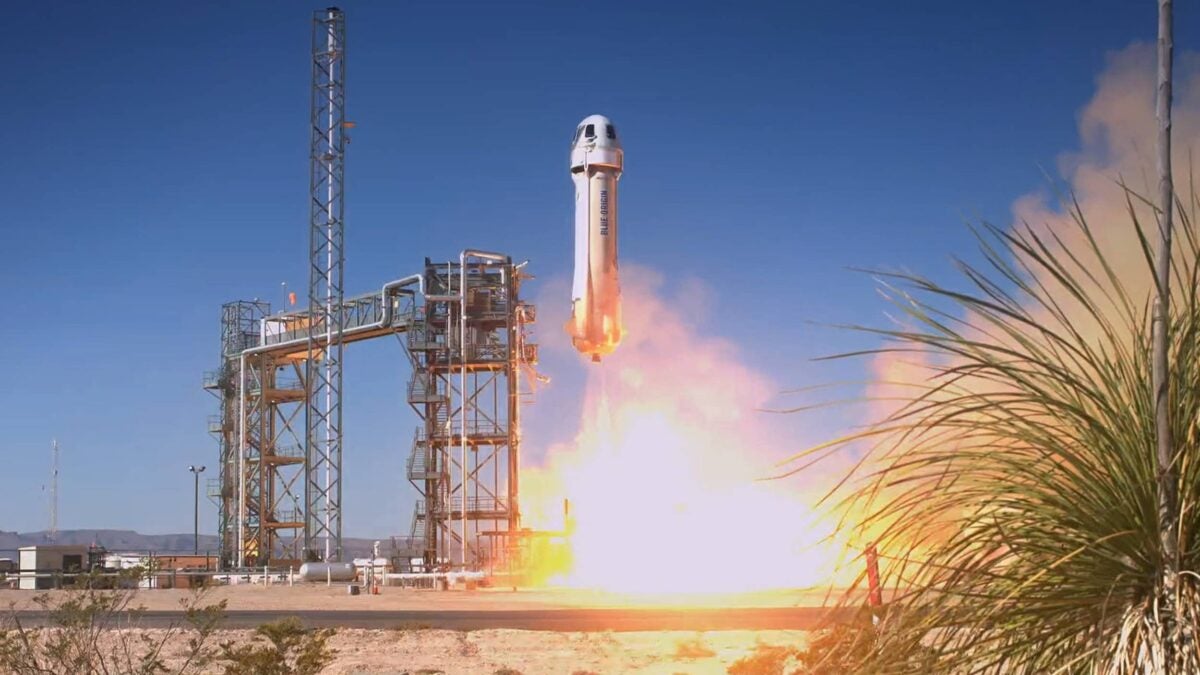The Scientific Exploration and Research Agency has reserved all six seats on a Blue Origin flight for people from India, Nigeria and small island developing states.

Blue Origin's New Shepard rocket lifts off during the NS-25 astronaut mission on May 19. Credit: Blue Origin.
The US-based Space Exploration and Research Agency (SERA), which describes itself as a “space agency for all,” will transport citizens of India, Nigeria and small island developing states (SIDS) to the edge of the atmosphere in camaraderie with Blue Origin, the space tourism company of Amazon founder Jeff Bezos.
Each nation is assigned a seat on an upcoming Blue Origin flight, and applicants can secure a spot for just $2.50.
“India has achieved remarkable milestones in its space journey in recent years, including becoming the first country “To reach the South Pole of the Moon,” said Joshua Skurla, co-founder of SERA, about the program’s new partner country.
United States and India last month strengthened their collaboration on manned spaceflight and space safety. NASA also Training an Indian astronaut for a trip to the International Space Station as early as this year.
SERA works with countries where few or no citizens have reached the final frontier. In April, it purchased six seats on Blue Origin's New Shepard rocket that will take citizen astronauts to the Karman Linewhich at 100 kilometers is considered the limit between Earth and space.
Formerly known as the Crypto Space Agency and funded by NFTs, the program played a role in Blue Origin's fifth manned space flight, NS-21, grant a seat to Brazilian civil engineer Victor Hespanha, the second astronaut from that country, through a raffle.
According to SERA, more than eight out of 10 astronauts come from just three countries: the United States, Russia and China. In June, it partnered with Nigeria’s National Space Research and Development Agency to send that country’s first citizen into space.
“Our mission is to democratize space by enabling citizens from over 150 space-limited countries to participate in pioneering research and create history,” Skurla said. “Our goal is to empower people around the world to have a say in the future of space exploration.”
In an unprecedented initiative, SERA will allow people around the world to vote on which citizens will make the approximately 11-minute journey.
Anyone living in one of the program's partner countries is eligible to apply for a spot. Applicants must be fluent in English, be at least 18 years old, and meet Blue Origin's guidelines for height, weight, physical condition, and citizenship.
Five of the seats will be allocated to specific nations and candidates will be elected by the citizens of those nations. The sixth will be open to anyone from a SERA partner country and will be elected through a global vote. The remaining seat allocations will be announced later this year.
During the second quarter of 2024, voters will choose from the final 24 candidates. They will then design and vote on the experiments that astronauts will perform during the flight. Later this year, a pre-launch documentary series will reveal the winning experiments.
After three days of training at Blue Origin’s launch site in West Texas, the civilian crew will board New Shepard sometime after the third quarter. The company’s next mission, NS-26, does not yet have a planned launch date.
“By giving communities the power to choose their astronauts, we ensure this mission is powered by people, for people,” said Sam Hutchison, co-founder of SERA with Skurla. “This approach will ignite national conversations about space and foster international collaboration in space exploration.”
Hutchison previously served as president of Boeing-backed Reaction Engines, which designs rocket engines aimed at hypersonic flight.
SERA says its upcoming mission will be the first of several flights in partnership with Blue Origin. The company's New Shepard rocket in December made a back in action following a FAA Grounding and Investigation in September 2022 incident And in May it launched another mission: its first manned flight in almost two years.
So far the spacecraft has performed as expected, which should give SERA confidence in being able to send more civilians into space in the near future.
This article was first published on flyingmag.com.
Do you like this story? We think you'll like the one too Newsletter The future of FLYING Sent every Thursday afternoon. Register now.